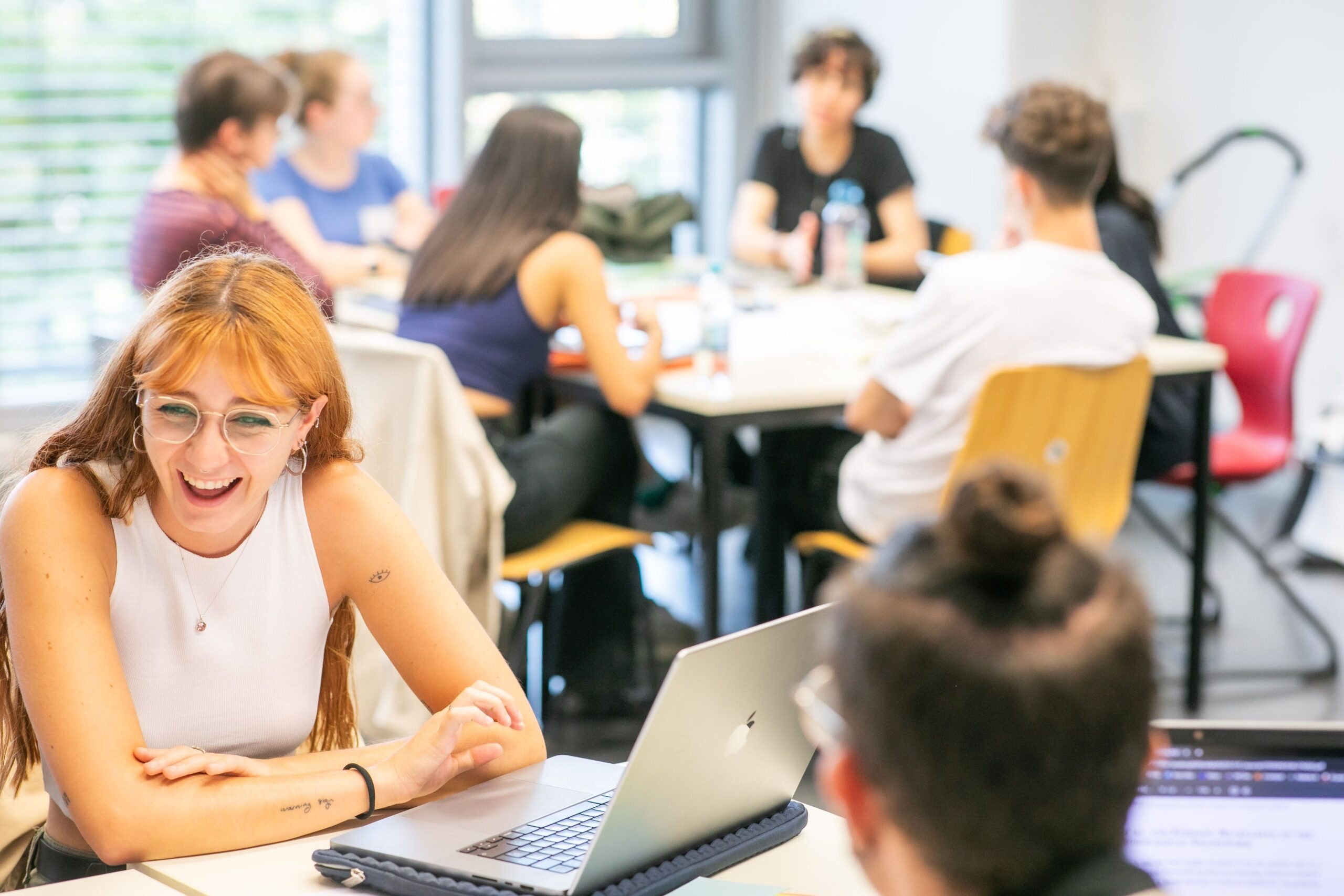Students involved: 11 from Berlin, 123 from abroad and 10 from other German universities
Professors involved: Professors from Poland, Spain, Mexico, Ecuador and Germany
Synchronous units: 3 synchronous sessions of 90 minutes each in the course of September 2023; students who were unable to attend the synchronous sessions had the opportunity to participate in the discussion in advance via an Etherpad and give their input.
Asynchronous units: The student teams were able to schedule the asynchronous units themselves between the synchronous units. Collaboration took place primarily via email and WhatsApp.
Tools used: Zoom, Etherpad (kits-Tools)
“The three-part COIL module was held as part of the ENHANCE Summer School ‘Gender and Diversity in STEM’ organized by ZIFG (Center for Interdisciplinary Women’s and Gender Studies) and Gender Pro MINT at TU Berlin. Participants of the Summer School – students of the European university alliance ENHANCE – discussed case studies on queer-feminist climate policy together with students from Mexico and Ecuador as part of the COIL. For this purpose, an a-synchronous/synchronous learning format was developed by the organizers of the COIL in Mexico, Ecuador and Germany.
The partners in Mexico and Ecuador provided regional case studies, the processing and discussion of which brought a great increase in knowledge for all students – especially through the change of perspective made possible and the broadening of their own horizons of experience. The expert knowledge from gender studies contributed by TU Berlin, both in terms of queer-feminist climate policy and in relation to the didactics of critically reflective teaching of gender and diversity aspects, was met with great interest by the participants.”
The COIL consisted of three units:
1. ice breaker: after a brief introduction to the topic and presentation of the tasks and expectations, the students were sent to the pre-determined breakout rooms with international working groups of around four to six students. With the help of an Etherpad and pre-defined “ice breaker questions”, the students introduced themselves within their groups and got to know each other. The first session also served to familiarize students with the digital, intercultural setting in general.
2. collaborative work: For the collaborative work and learning phase, the student groups were given a case study that they read in advance and then discussed critically within their groups on the basis of questions. The results were recorded in an Etherpad for each group and key points were discussed in the large group.
3. reflection: The reflection round was structured on the basis of reflection questions communicated via the Etherpad. The students had the opportunity to share their experiences, opinions and feelings in the small teams and discuss them (based on the questions), as well as in the large group.
Quote from Sahra Dornick, organizer of the COIL at the TU: “Although there were internet problems, the participants were enthusiastic about the opportunity to learn together globally. The participants appreciated the change of perspective associated with the discussions as well as the experience of interdisciplinary and international climate policy engagement. We, as organizers of the project, agree that we would very much like to continue and expand the offer.”
The Etherpads created for each group, in which all students were to participate, served as proof of participation. The contributions were to be marked by name. At the end of each session, the Etherpad was sent to the lecturers as a PDF. In addition to the exchange in the small groups, feedback could always be shared and discussed in the large group. As the COIL was integrated into existing courses at the respective partner institutions, the credits were also awarded by the home universities as part of these courses. Students who participated in at least 80% of the COIL received a digital badge for the course at the end.
